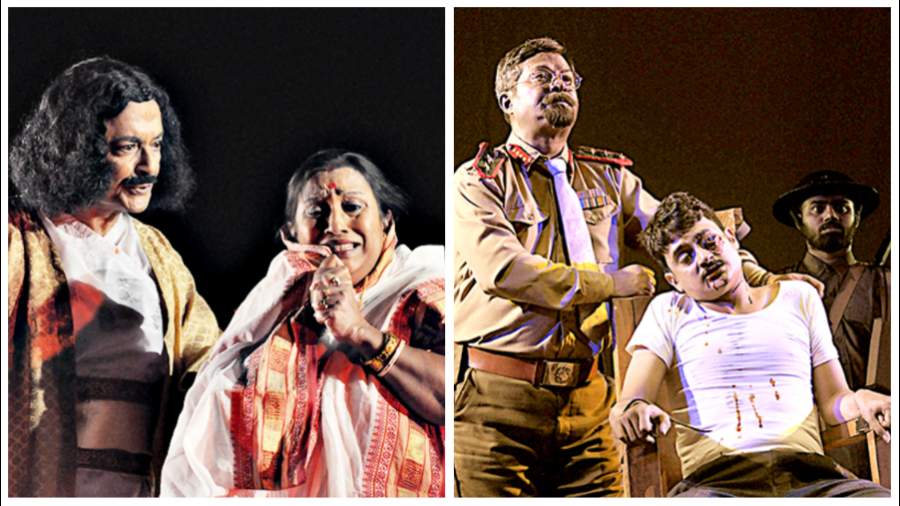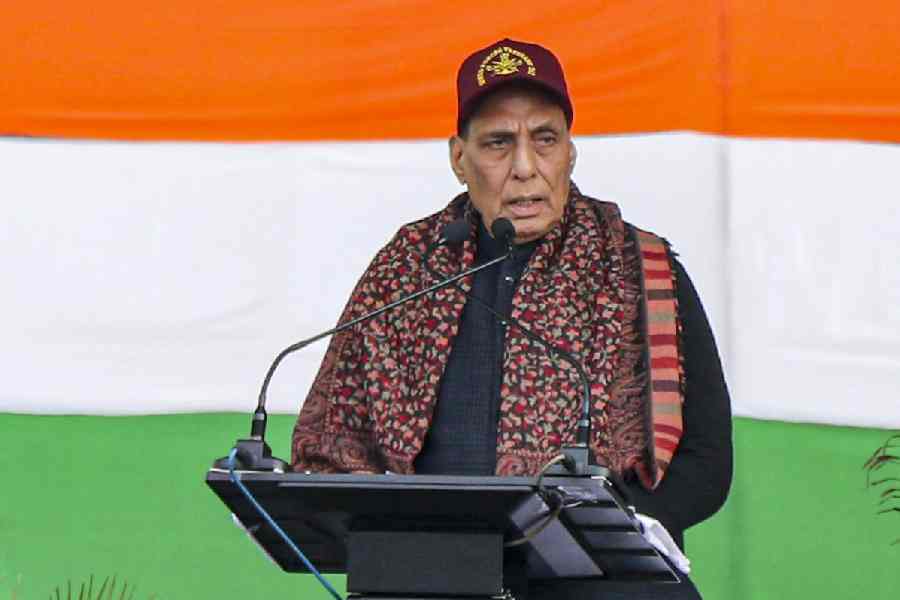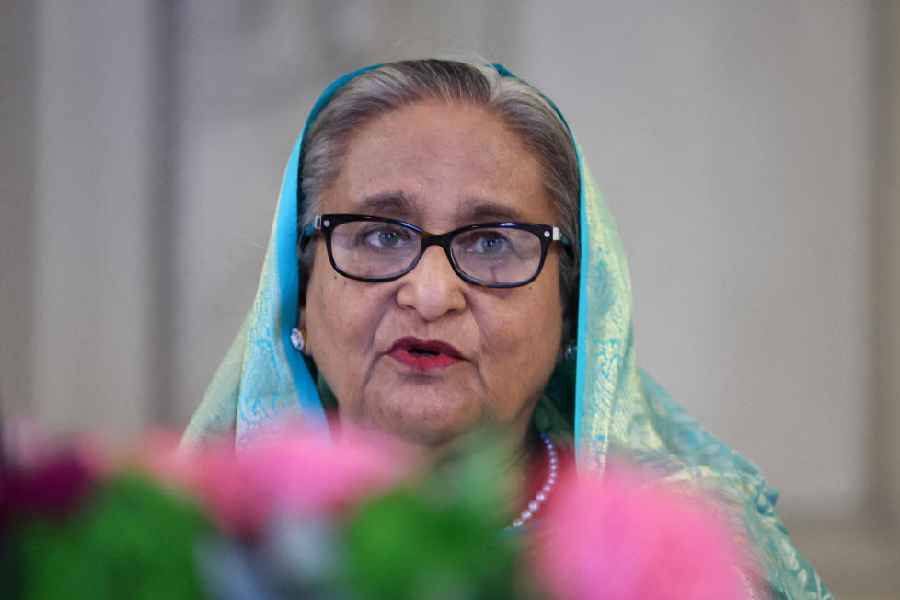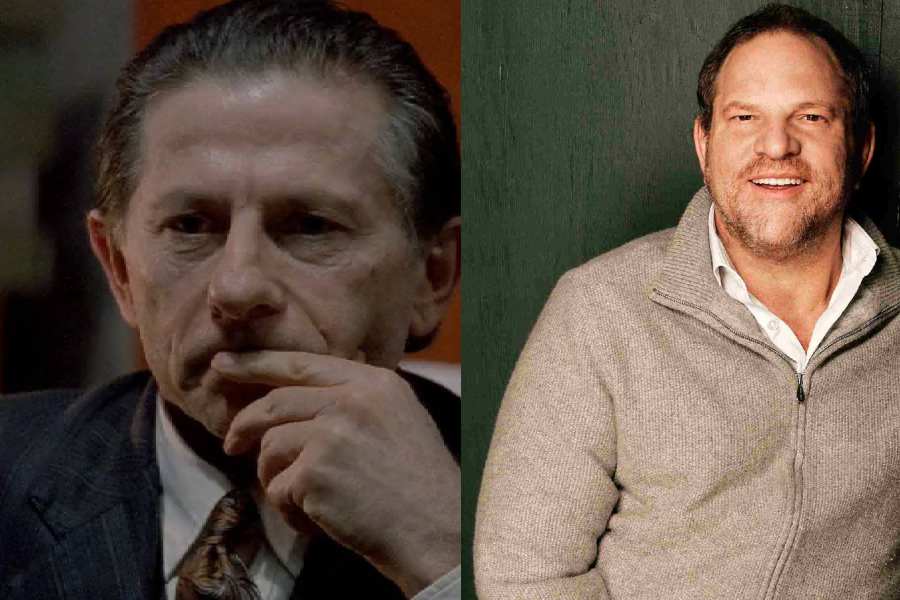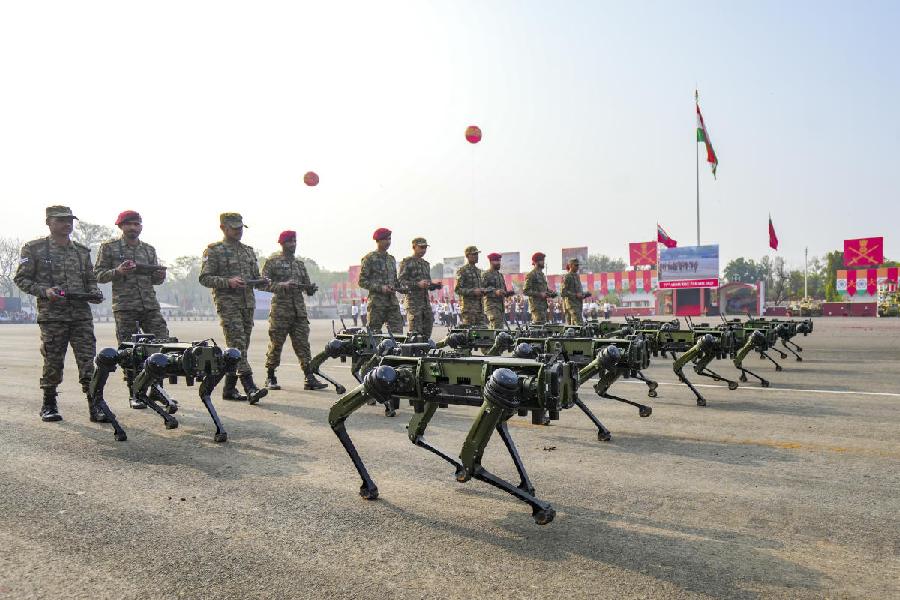Utpal Dutt’s reading of history and its iconic characters has found quite a few takers in recent years. Among them, Theatre Formation Paribartak’s Titumir was initially chosen to inaugurate the Bharat Rang Mahotsav, the National School of Drama’s annual showcasing of contemporary Indian theatre, which starts on February 14; however, it was unceremoniously dropped at the eleventh hour. If Titumir (reviewed in this column on June 13, 2020) represents Dutt’s propensity to relocate a historically marginalised character, there are many other plays which take a critical look at heroes and the cult of hero worship. Two such plays were recently premiered by two prominent theatre groups known for their allegiance to political theatre. They also corroborated the quintessential Bengali tendency to celebrate its icons, especially when a jubilee is around the corner.
The 250th birth anniversary of Raja Rammohan Roy (1772-1833) was deemed to be commemorated elaborately by the ministry of culture. But nothing memorable has happened to date. Theatre Workshop’s decision to stage Agnishojya (picture, left), Dutt’s 1988 play that probes deep into the mind of the man who championed women’s rights in this part of the world and fought tooth and nail to abolish the custom of sati in 1829, fills this vacuum to some extent. Written months after Roop Kanwar, a Rajput woman, was burnt alive in a Rajasthan village, Agnishojya (Bed of Fire) finds Roy the reformer (Debashis Roy Chowdhury) in his prime. How he fights the Hindu conservatives led by Raja Radhakanta Deb (Sumitro Bandyopadhyay) on the one hand and the perpetrators of the barbaric practice on the other form the crux of the narrative.
Ashok Mukhopadhyay, the director, cuts his coat according to his cloth and makes optimum use of the senior actors in his group. Dutt’s imaginative reconstruction of Roy’s meetings with the governor-generals, Amherst (Kamal Manna) and Bentinck (Ambar Champati), could have been more authoritative and the latent humour better articulated. In comparison, the domestic scenes fared better. Rina Halder, who played Roy’s wife, and Suranjana Ghatak, who played Snehamoyee, the widow who sought Roy’s help only to fail him at a crucial juncture, impressed in tough situations. Roy Chowdhury, playing the role of a lifetime, looked the part and gave his best shot. Mukhopadhyay’s ability to weave inter-textual references, like that of Bertolt Brecht’s Life of Galileo, into Dutt’s dialogues was delightful. One wishes that Theatre Workshop would have pulled out all the stops to raise the bar in the sati scene. The key point is: you cannot underplay the climax in a Dutt play.
Ashokenagar Natyaanan, led by Chandan Sen, had produced a superb adaptation of Surya Shikar, Dutt’s brilliant Indianisation of Life of Galileo, exactly two decades ago. Their choice of Dilli Chalo (picture, right), based on Dutt’s 1970 jatra text, was a thoughtful one. Inspired by the Indian National Army’s last-ditch effort to stay afloat after the Japanese supplies ran dry, Dilli Chalo never brings Subhash Chandra Bose on the stage, but his presence is felt all along.
Sen, trained under Dutt, knows how to marshal a large army of actors, à la People’s Little Theatre. The INA soldiers, played spiritedly by Shakya Roy, Soma Naha, Rwitobroto Mukherjee et al, were a treat to watch. The Naga militants, led by Baidehi Narayan, matched them in essence. Sen essayed the key role of Colonel Brenan, the British officer, with the usual panache. Seniors like Loknath Bandyopadhyay, Panchanan Banerjee and Shantilal Mukherjee chipped in with strong portrayals. One expected a refined use of stage space and technical tools in a play that explores modern warfare.

